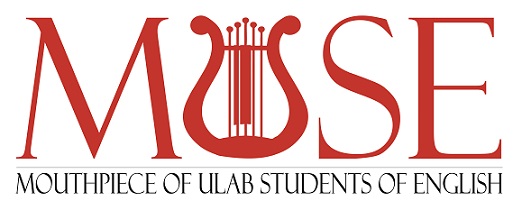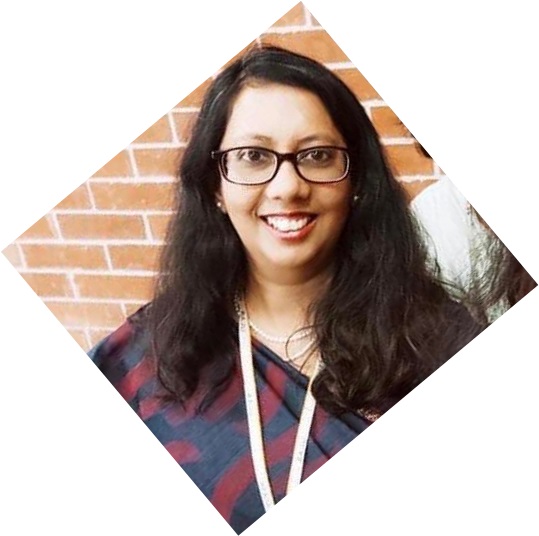She needs no introduction. The beloved Head of the Department of English and Humanities and Associate Professor, Arifa Ghani Rahman, has been a trailblazer in many ways. From bringing digital learning systems into traditional classrooms to holding a powerful position with utmost dignity and grace, Arifa Rahman’s story about the various conflicts she has faced was sought by MUSE’s sub-editor Shahriyer Hossain Shetu. Shahriyer now presents her words of wisdom to our readers. Here we go…
When you decided to be a teacher, did you have to fight any external or internal conflicts arising from that decision?
I’ll tell you that teaching was not a decision I made. It was something that happened. When I completed my O and A Levels, I had a career planned in engineering. Fate brought me to the Department of English at the University of Dhaka. That was the beginning of the conflict within me. English was like a first language to me and, with my science background, I had no clue that English could be a subject of study. I spent the first year fighting with myself to keep going. Only after I topped the list after the first year did I start to enjoy my time and eventually overcame my internal conflict to be where I am today.
As a successful and experienced person now, do you still face any external or internal conflicts in your position?
Of course! There are always situations when I have to make tough decisions. This can lead to both internal and external conflicts. Success or experience does not quite matter here as, most of the time, each case is unique, especially when it comes to student issues. Each one needs to be considered individually.
What is one key advice you would give to students who are conflicted regarding their choice of profession?
I would say, first, know what you enjoy. Then set your goal towards it. Develop the appropriate skills for it.
Of course, you may not find a job to your liking right away but keep preparing yourself for it and do well where you are. Eventually, if you are focused, you will find your niche.
In my experience, I’ve seen that students think short-term internships will help them enrich their CVs. However, they must remember that these internships in diverse fields can actually be detrimental as they show a lack of focus. If there are multiple opportunities, students can talk to their seniors, faculty, or family members to understand whether these opportunities will help them in reaching their goal. Only then should they proceed.
As a successful woman , how do you balance conflicting priorities? How can our ULABIAN female students develop their ability to balance their personal and professional lives in the future?
A tough question because, as you know, there are always a lot more expectations from women, especially married ones, to do well in both their professional and personal lives. I think the key here is patience and keeping a positive attitude. Always try to see the good side of every situation and give others the benefit of doubt. It can be very difficult at times but it pays off in the long run not only to balance conflicting priorities but to avoid or prevent both internal and external conflicts from occurring.
Based on the increasing prevalence of conflicts around the world (communal, war, environmental, etc.) how can students armor themselves to face the difficult battle ahead of them?
Rather than armor, I would say equip. Life is a battle, certainly, but rather than going into it in a confrontational manner, I believe it is better to consider every situation with patience and a positive attitude, as I mentioned earlier, and equip ourselves with the appropriate skills and tools to tackle the challenges that will inevitably come our way.
Being a fan of your teaching methods and research projects, we can understand why you advocate the combination of online and offline teaching. What was the biggest challenge you faced when trying to incorporate digital learning into the classroom for the first time?
Tradition. That was my biggest challenge. As human beings, we are creatures of habit and it is difficult to change the mass mindset. It took a lot of convincing and persuasion to bring colleagues on board. But, to be fair, this was the case all over the world when online teaching or LMSs were introduced. I had the same experience at Rivier University in New Hampshire, USA many years ago. Now it is a given there. However, once the pandemic hit, those familiar with online teaching or tools at ULAB or in other institutions in Bangladesh found it easier to switch modes while others realized the efficacy of the system. The challenge now is to ensure the use of the tools we learned and not set them aside as we are teaching in-person again.
According to you, what has led the conflict between online and offline learning to a place where these two things now mutually benefit one another ?
This conflict, for us, was, ironically, overcome with another conflict – the pandemic. As I mentioned in my response to the previous question, the benefit of being familiar with online teaching tools was fully understood when we had to switch to the online mode. To my knowledge, ULAB faculty members and students were able to do this without too much trouble because we have been using online teaching tools, particularly Moodle, since 2014. So, as soon as lockdown began, we switched smoothly to the online mode without any interruption. Now that we are back in-person, more faculty members and students continue to use the LMS as a supplement to their teaching and learning.
What can students do to bridge the generational gap between their teachers and themselves while respecting boundaries?
A tricky question! I think one important way to bridge any gaps is to try and avoid undermining each other. It goes back to what I mentioned about patience. Tolerance too. We also need to put ourselves in others’ shoes to understand different perspectives. That way, I believe, it can be possible to avoid generational differences. I also believe that it is not only the responsibility of the students but of the teachers as well. Each must meet the other halfway.
Finally, what is your vision for a peaceful future? How can ULAB, as a community, contribute towards that vision?
Patience and tolerance are key. We need to apply these two virtues to every situation in which we find ourselves, within or outside our homes, university, or community.
We need to control our egos and not think that backing down in an argument or conflict is a show of weakness.
The ULAB community can practice this within its institutional relationships. A mutual understanding among students, teachers and administrators will help to avoid conflicts and, in the long run, we all reap the benefits.

